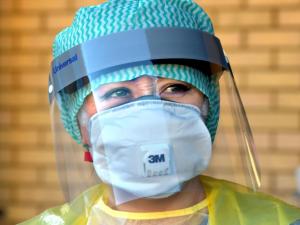
By Michael McHugh, PA.
Post-traumatic stress disorder (PTSD) amongst NHS staff helping patients with Covid-19 could rise by 70% if they are not given the right support before returning to regular routines, psychiatrists warned.
The Royal College of Psychiatrists Northern Ireland is called for a phased return to normal working for NHS staff in the same fashion which the military uses to bring troops back from deployment.
One element is decompression, 36 hours of relaxation, briefings, and psychological resetting away from the operational environment.
Dr Gerry Lynch, chair of the Royal College of Psychiatrists NI, said: "Our frontline staff work really hard at the best of times, but during the pandemic they've been working under much stress whilst continuing to treat those patients with mental health conditions.
"If our mental health workers are not supported during the recovery process then they may suffer significant health problems in the future and we cannot afford to not have them there, if a second wave hits.
"There is a risk that if key workers such as doctors are not supported well enough during the recovery process, then they may suffer significant mental health problems.
"This is particularly problematic if there is a second wave of the virus."
Stormont health minister Robin Swann has published a mental health action plan which includes a dedicated Covid-19 response.
It aims to help mental health patients access the support they need.
New analysis published in the BMJ of the mental health impact of staff working with patients suffering from Covid-19 has shown the danger of not giving staff the chance to reset following a crisis.
The study suggests that staff working with patients with Covid-19 are 70% more likely to develop acute PTSD or to suffer from other psychological distress.
Post-traumatic stress disorder (PTSD) amongst NHS staff helping patients with Covid-19 could rise by 70% if they are not given the right support before returning to regular routines, psychiatrists warned.
The Royal College of Psychiatrists Northern Ireland is called for a phased return to normal working for NHS staff in the same fashion which the military uses to bring troops back from deployment.
One element is decompression, 36 hours of relaxation, briefings, and psychological resetting away from the operational environment.
Dr Gerry Lynch, chair of the Royal College of Psychiatrists NI, said: "Our frontline staff work really hard at the best of times, but during the pandemic they've been working under much stress whilst continuing to treat those patients with mental health conditions.
"If our mental health workers are not supported during the recovery process then they may suffer significant health problems in the future and we cannot afford to not have them there, if a second wave hits.
"There is a risk that if key workers such as doctors are not supported well enough during the recovery process, then they may suffer significant mental health problems.
"This is particularly problematic if there is a second wave of the virus."
Stormont health minister Robin Swann has published a mental health action plan which includes a dedicated Covid-19 response.
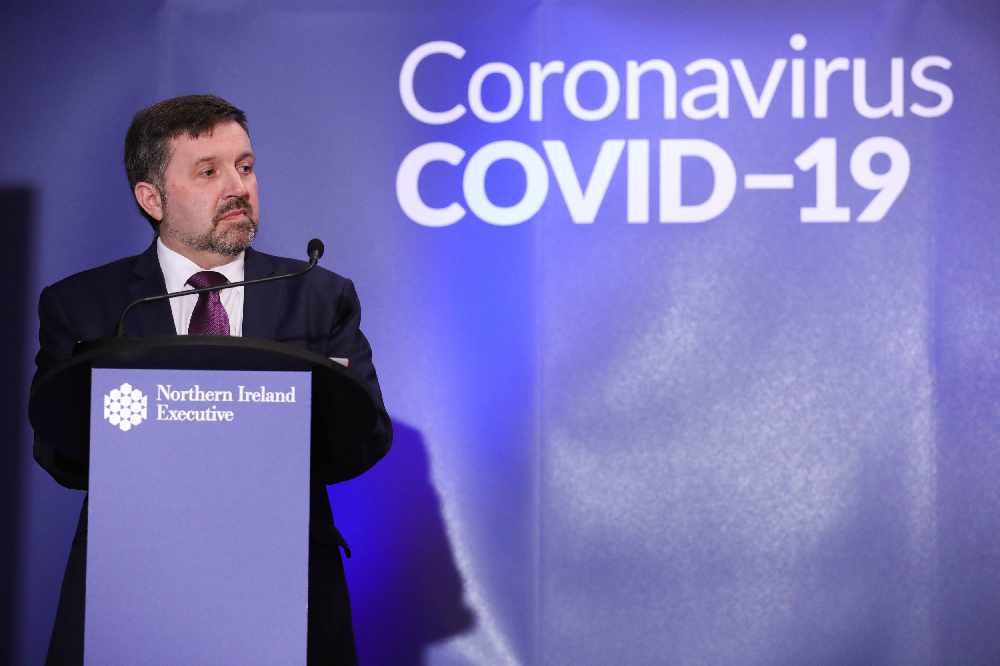
It aims to help mental health patients access the support they need.
New analysis published in the BMJ of the mental health impact of staff working with patients suffering from Covid-19 has shown the danger of not giving staff the chance to reset following a crisis.
The study suggests that staff working with patients with Covid-19 are 70% more likely to develop acute PTSD or to suffer from other psychological distress.
Post-traumatic stress disorder (PTSD) amongst NHS staff helping patients with Covid-19 could rise by 70% if they are not given the right support before returning to regular routines, psychiatrists warned.
The Royal College of Psychiatrists Northern Ireland is called for a phased return to normal working for NHS staff in the same fashion which the military uses to bring troops back from deployment.
One element is decompression, 36 hours of relaxation, briefings, and psychological resetting away from the operational environment.
Dr Gerry Lynch, chair of the Royal College of Psychiatrists NI, said: "Our frontline staff work really hard at the best of times, but during the pandemic they've been working under much stress whilst continuing to treat those patients with mental health conditions.
"If our mental health workers are not supported during the recovery process then they may suffer significant health problems in the future and we cannot afford to not have them there, if a second wave hits.
"There is a risk that if key workers such as doctors are not supported well enough during the recovery process, then they may suffer significant mental health problems.
"This is particularly problematic if there is a second wave of the virus."
Stormont health minister Robin Swann has published a mental health action plan which includes a dedicated Covid-19 response.
It aims to help mental health patients access the support they need.
New analysis published in the BMJ of the mental health impact of staff working with patients suffering from Covid-19 has shown the danger of not giving staff the chance to reset following a crisis.
The study suggests that staff working with patients with Covid-19 are 70% more likely to develop acute PTSD or to suffer from other psychological distress.


 Swann refuses to rule out resigning if budget is not changed
Swann refuses to rule out resigning if budget is not changed
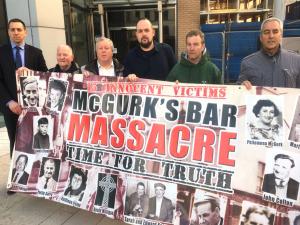 Fresh inquests ordered into deaths of 15 killed in McGurk’s bomb blast
Fresh inquests ordered into deaths of 15 killed in McGurk’s bomb blast
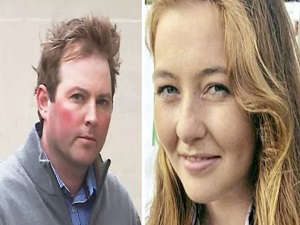 Trial ends after man accused of murder of young showjumper is found dead
Trial ends after man accused of murder of young showjumper is found dead
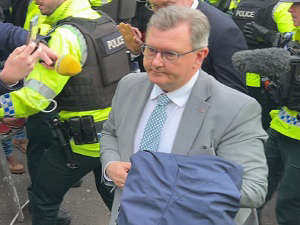 A brief hearing and chaotic scenes as Donaldson makes first court appearance
A brief hearing and chaotic scenes as Donaldson makes first court appearance